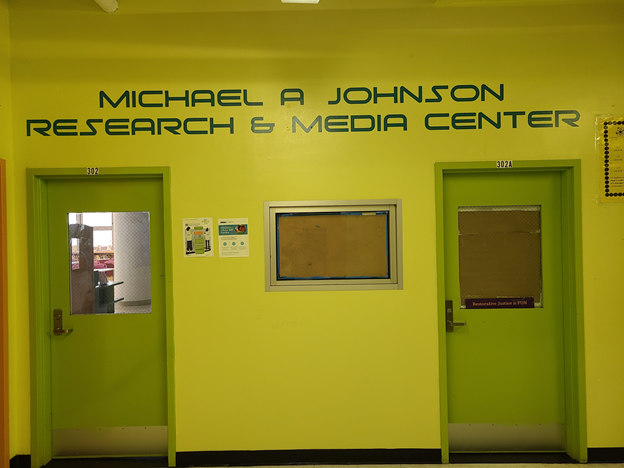“…More than 7,000 people signed an online petition this week about the fabled Manhattan performing arts school featured in the movie and TV series “Fame.” Critics charge Principal Lisa Mars has pushed test scores and academics at the expense of the school’s core mission of encouraging young artists…”-NY Times/8/192016
“…A parental faction at Professional Performing Arts School in Hell’s Kitchen claim basic learning has been left behind in favor of splashy stage productions…”- NY Post/9/1/2016
Putting aside for the moment, for reasons of communication clarity, the fact that “the arts” are part of the required and necessary core curriculum, and are therefore very much “Academic”. But I understand how laypersons (non-professional educators) are speaking about this topic, and so I will temporarily adopt the public’s definition of “academics”. The problem in public education, is that we too often ask the wrong questions, and wonder why we always arrive in a non-productive place.
First of all, high schools generally have the unique challenge, responsibility and mission of preparing young people for the end of their public school experience, and for the beginning of an adult (career and/or college path), where the rules and expectations are very different from our K-12 world. High school educators must be in the center of the knowledge of that “adult world”; but at the same time not be philosophically, of that world. Our role is to facilitate a smooth, as possible, transition into the requirements of adult life.
We also want to balance several, sometimes competing objectives. (1) Making sure that the student graduates, with the most advantageous (for them) diploma possible. (2) Help the young person to fully realize their personal gifts and talents. (3) Help students to fulfill their hopes, dreams and professional aspirations. (4) create a situation whereas the young person will be able to sustain a financially independent and comfortable style of life as an adult. (5) Last, but in no way least, help young people to discover their “calling” in life; the reason and purpose for their presence on earth. I have always given students the advice I followed myself: “Find something you are passionate about, that you are good at, and love to do more than anything else; and then get paid to do it!”
A truly successful graduation is when you are able to accomplish all of the above 5 objectives. But this is where I get into trouble, particularly when it comes to Black males, and the unfair and dangerous life-lottery game they enter as it pertains to professional sports careers. We know, based on solid irrefutable data, that dealing with the present reality, many of the professions that students wish to enter, voiced at any K-12 grade level won’t be realized. And for many students in this nation the reasons have nothing to do with brains and talent. But even for those students who have access to great informal (out of school) educational experiences; those who do receive a rich, rigorous and high expectations formal educational school experience; this still may not result in their realizing a particular professional goal. It is often a “numbers”, connections, “opportunity” (that place where talent, timing and readiness meet), and talent game. For there are only so many: dramatic plays, Olympic team slots, films, professional sports teams open positions, principalships, judgeships, medical school slots, etc., available; and a large number of very talented people all be vying for the same positions and appointments. We could successfully argue that the present system is warped, but it is what it is. And high school educators (as powerful as we think we are) don’t get a chance to change the society that is external to our schools; only a chance to encourage students to change that society for the better when they take their places as citizen-caretakers of the nation.
Like most things in public education, an “either-or” solution, is almost always an oversimplification. The problem is compounded by the fact that we try to fit every high school into the same general high school mode of: labor agreements-laws, contracts, regulations, budget, and staffing, scheduling and organizational format. This “standard” format hurts all schools; but it creates even greater problems for CTE, STEM, performing arts, or any type of theme specialized high school. These schools are often placed in the position of trying to satisfy two conflicting missions (internal-external); with the clear political power differential favoring the external (State-Local oversight) mission.
How about thinking and doing these schools in a radically different way? A different staffing model and scheduling of that staff; a different day, week, semester and year. Why not design these school from “inside-out”; with structures and organizations that responded to the school’s mission? A way that would allow them to achieve the 5 principles with all students! Don’t make these schools look like other schools, make them look completely like different schools! Start with the type of student we want at graduation, and then work backwards to design a school to produce that student.
Every school regardless of theme should seek to accomplish the five principles I outlined earlier. That means engage and empower the gifts and talents of students; and at the same time provide them with the credentials, tools and skills to have a multiple path of future options. We know that many students “discover” a career they love after leaving high school; and so why not give them “flexible life-negotiation skills and credentials”, that would allow them to make the necessary adjustments they may need to make in a future career choice?
Besides, based on many of the Incoherent interviews, and bad decisions often made by a lot of performing arts and sports “stars”; I think that having a strong knowledge base of: foreign language & cultural literacy, history, Black-Latino-Women’s studies, literature, economics, mathematics, philosophy, sociology, psychology and science, would actually be helpful, and a career enhancer.
